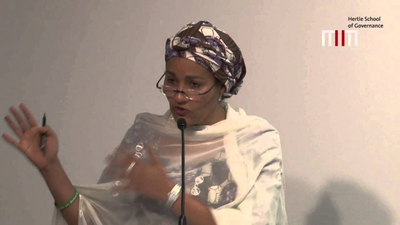
Donald John Trump was elected the 45th president of the United States on Tuesday in a stunning culmination of an explosive, populist and polarizing campaign that took relentless aim at the institutions and long-held ideals of American democracy.
The surprise outcome, defying late polls that showed Hillary Clinton with a modest but persistent edge, threatened convulsions throughout the country and the world, where skeptics had watched with alarm as Mr. Trump’s unvarnished overtures to disillusioned voters took hold.
The triumph for Mr. Trump, 70, a real estate developer-turned-reality television star with no government experience, was a powerful rejection of the establishment forces that had assembled against him, from the world of business to government, and the consensus they had forged on everything from trade to immigration.
The results amounted to a repudiation, not only of Mrs. Clinton, but of President Obama, whose legacy is suddenly imperiled. And it was a decisive demonstration of power by a largely overlooked coalition of mostly blue-collar white and working-class voters who felt that the promise of the United States had slipped their grasp amid decades of globalization and multiculturalism.
In Mr. Trump, a thrice-married Manhattanite who lives in a marble-wrapped three-story penthouse apartment on Fifth Avenue, they found an improbable champion.
“The forgotten men and women of our country will be forgotten no longer,” Mr. Trump told supporters around 3 a.m. on Wednesday at a rally in New York City, just after Mrs. Clinton called to concede.
In a departure from a blistering campaign in which he repeatedly stoked division, Mr. Trump sought to do something he had conspicuously avoided as a candidate: Appeal for unity.
“Now it’s time for America to bind the wounds of division,” he said. “It is time for us to come together as one united people. It’s time.”
That, he added, “is so important to me.”
He offered unusually warm words for Mrs. Clinton, who he has suggested should be in jail, saying she was owed “a major debt of gratitude for her service to our country.”
Bolstered by Mr. Trump’s strong showing, Republicans retained control of the Senate. Only one Republican-controlled seat, in Illinois, fell to Democrats early in the evening. And Senator Richard Burr of North Carolina, a Republican, easily won re-election in a race that had been among the country’s most competitive. A handful of other Republican incumbents facing difficult races were running better than expected.
Mr. Trump’s win — stretching across the battleground states of Florida, North Carolina, Ohio and Pennsylvania — seemed likely to set off financial jitters and immediate unease among international allies, many of which were startled when Mr. Trump in his campaign cast doubt on the necessity of America’s military commitments abroad and its allegiance to international economic partnerships.
From the moment he entered the campaign, with a shocking set of claims that Mexican immigrants were rapists and criminals, Mr. Trump was widely underestimated as a candidate, first by his opponents for the Republican nomination and later by Mrs. Clinton, his Democratic rival. His rise was largely missed by polling organizations and data analysts. And an air of improbability trailed his campaign, to the detriment of those who dismissed his angry message, his improvisational style and his appeal to disillusioned voters.
He suggested remedies that raised questions of constitutionality, like a ban on Muslims entering the United States.
He threatened opponents, promising lawsuits against news organizations that covered him critically and women who accused him of sexual assault. At times, he simply lied.
But Mr. Trump’s unfiltered rallies and unshakable self-regard attracted a zealous following, fusing unsubtle identity politics with an economic populism that often defied party doctrine.
His rallies — furious, entertaining, heavy on name-calling and nationalist overtones — became the nexus of a political movement, with daily promises of sweeping victory, in the election and otherwise, and an insistence that the country’s political machinery was “rigged” against Mr. Trump and those who admired him.
He seemed to embody the success and grandeur that so many of his followers felt was missing from their own lives — and from the country itself. And he scoffed at the poll-driven word-parsing ways of modern politics, calling them a waste of time and money. Instead, he relied on his gut.
Read more: New York Times
Photo credit: AP Photo/David Goldman



